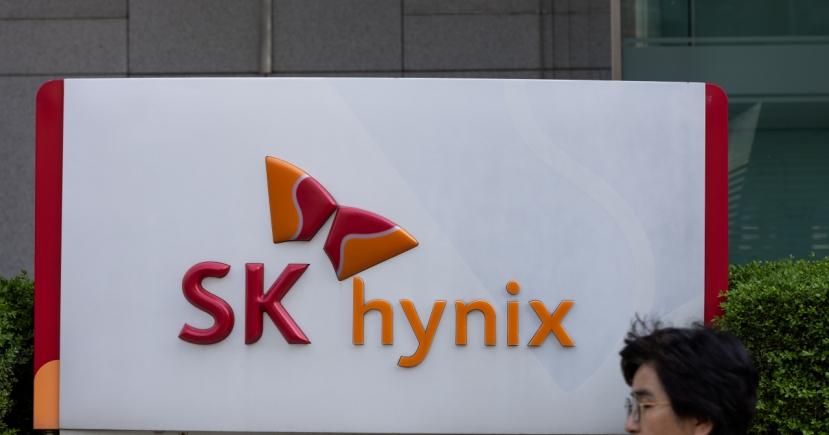Economy
[KH Explains] ‘Kimchi premium’ returns, but weaker
 |
An electronic signboard shows the price movements of cryptocurrencies at the headquarters of Bithumb in seoul on Feb 28. (Yonhap) |
With the unprecedented global rally of bitcoin seen earlier this week, the “kimchi premium,” referring to the price discrepancy in cryptocurrency between Korea and other international markets, has soared as well.
The gap had widened to 12 percent as of 5 a.m. Wednesday, meaning the bitcoin that traded in Korea was 12 percent more expensive than the global average. It later came down to the 6 percent range as of Thursday morning.
While the bitcoin price has quickly rebounded since experiencing a steep fall on Wednesday, the price discrepancy could jump again as the crypto asset remains volatile.
What is kimchi premium?
Calculated by taking the percentage difference between the price of a cryptocurrency asset between Korean exchanges and the global average, the kimchi premium is predominantly observed in the price of bitcoin, the world’s biggest cryptocurrency.
In 2017, when the price of bitcoin traded in Korea first soared to over 3 million won ($2,250), the kimchi premium amounted to 60 percent. When the bitcoin price surged in 2021, price discrepancies between 10 and 20 percent were observed.
But when the bitcoin price falls and “crypto winter” comes, the price discrepancy narrows, sometimes even to nearly zero.
“In more recent years, cryptocurrency prices in Korea have been showing a synchronized movement with the global market price. There may be some discrepancies, but the prices generally move in the same direction,” said an official from a local crypto trading service operator.
Why does this happen?
The price discrepancy happens mainly due to the high demand for cryptocurrencies here under a closed market environment.
Under the Act on Reporting and Using Specified Financial Transaction Information introduced in September 2021, only Korean nationals or foreign residents with a resident registration card can make transactions through the exchanges, banning other foreigners and corporations.
High demand solely from retail investors brings the price up, as it is unable to be moderated by different groups of investors such as foreigners and institutional investors.
“Price is set by the market depending on demand and supply. If the markets are fully open and there are more players, the price kind of sets and are quite close between different platforms,” said Eric Anziani, president and chief operating officer at Singapore-based crypto trading platform Crypto.com.
“In other markets, we do not see that premium because there are more participants, so it is fairer for customers.”
No sideways?
Though Korean residents may opt for foreign crypto exchanges as an alternative, foreign crypto exchanges that have not earned a virtual asset service provider license cannot operate a business targeting Koreans, meaning they cannot have Korean-language services or provide Korean won as a fiat currency, making liquidation complicated.
“But still, a lot of Koreans are trading through foreign crypto exchanges as they offer future trading,” said the crypto service firm official. “Also, trading platforms such as Binance, the world’s biggest bitcoin exchange, offer a more diversified range of reliable coins.”
Some seek lucrative opportunities in taking arbitrage profits -- purchasing cryptocurrencies on foreign exchanges where they sell at lower prices and then reselling them on Korean exchanges for higher prices.
To purchase a cryptocurrency on a foreign exchange, individuals have to first purchase a cryptocurrency through a local exchange and transfer the assets to an overseas counterpart.
To avoid the “travel rule,” which mandates local crypto exchanges provide information on the sender and receiver to local authorities for transactions worth more than 1 million won, some even opt for illegal transactions.
Signs of shrinkage
Industry officials view that the price discrepancy is unlikely to widen as it had in the past, considering bitcoin has been embraced by the traditional finance sector.
“The kimchi premium has weakened significantly compared to the past,” an official from a local crypto exchange said.
“Especially with the approval of the spot bitcoin exchange-traded funds earlier this year, institutional investments have flowed into the global bitcoin market making the cryptocurrency’s price more stable,” the official said.
Allowing corporations to trade cryptocurrency could be a way to weaken the kimchi premium in the Korean crypto market as an introduction of institutional investors would diversify the range of market players.
“If Korea brings institutional investors, the prices could be more stabilized, bringing down the price discrepancy,” an official from another crypto exchange said.
By Im Eun-byel (silverstar@heraldcorp.com)








